Nigeria
Rights group, Amnesty International is on a collision course with the Nigerian Army over reports that the Army killed unarmed people in the lead up to a protest by the Indigenous people of Biafra (IPOB) in Onitsha, Anambra State.
The group called for urgent and independent investigations into what they described as extra judicial killings tasking further that ‘’… anyone suspected of criminal responsibility must be brought to justice.”
The army in a swift response to Amnesty’s claims, accused the group of a campaign of calumny in a strongly worded statement on it’s official facebook page.
The Amnesty report details evidence from eye witnesses, hospitals and morgues, of how the protesters were attacked by the military.
‘‘In one incident one person was shot dead after the authorities burst in on them while they slept. In one incident one person was shot dead after the authorities burst in on them while they slept,” said M.K. Ibrahim, Country Director of Amnesty International Nigeria.
The group added that their inability to settle on a definite number of casualties stemmed from the fact that the Nigerian army took away corpses and some injured people, but said their sources on the ground alleged that 40 people died with another 50 injured.
— Hope4Biafra (musthbee1) May 31, 2016
amnesty#NigeriaArmy must face the lnternational law for genocide against unarmed civilians in #Biafra land! pic.twitter.com/QrBG6aUmZv
Nigerian Army responds
The army response signed by Colonel Hamza Gambo accused Amnesty of playing ‘the judge and jury’ in matters bordering on Nigeria’s national security.
‘‘It should be noted that the Non-governmental organization has always been of the habit of being the judge and jury in matters of our national security without recourse to fairness, objectivity, all aimed at rubbishing the Nigerian Army for reasons best known to them. This could not be far from trying albeit unsuccessfully to be relevant and justify funding,’‘ he wrote.
He further detailed how the protests on May 31, had turned violent with a breakdown of law and order, a situation he says had resulted in the death of two policemen, whiles another soldier sustained injuries as well as the destruction of vehicles belonging to the police and army.
‘‘The military and of course the other security agencies acted professionally within the extant Rules of Engagement to successfully de-escalate the budding anarchy,’‘ he added.
About the Biafra secession fight
The late Biafran leader, Chukwuemeka Odumegwu Ojukwu declared the secession of the Republic of Biafra from Nigeria on May 30, 1966.
The indigenous people of Biafra movement (IPOB) has never stopped demanding the secession of this region mainly populated Igbo, one of three major ethnic groups in Nigeria, aggrieved by the central government in terms of infrastructure, health and education.
The attempted secession of Biafra launched in 1967 resulted in a civil war that killed about one million people.
The arrest in October of Nnamdi Kanu, Chief IPOB and director of Radio Biafra, and his detention pending trial provoked a wave of protests across the southeast and revived calls the independence of Biafra.
Accordint to Amnesty, its research shows that since August 2015, there have been at least five similar incidents in Onitsha alone where the police and military shot unarmed IPOB members and supporters. Amnesty International has documented cases of alleged unlawful killings by the Nigerian army between August 2015 and May 2016.



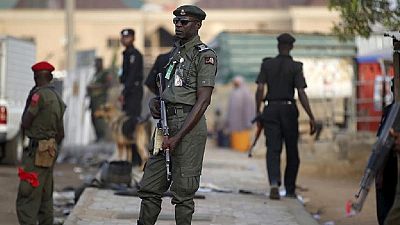



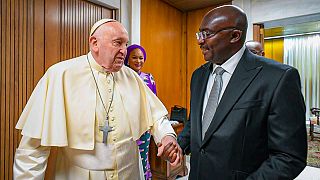
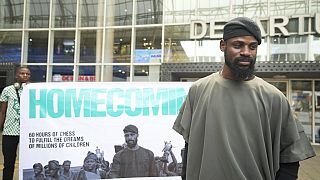

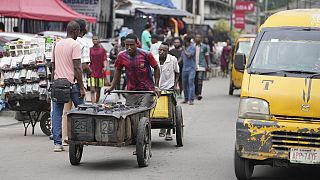
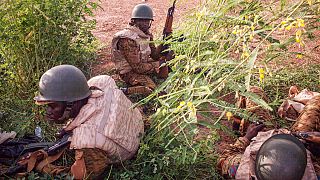
01:42
Gaza doctors deliver baby girl from mother killed in Israeli airstrike
00:39
Nigerian chess master plays for 60 hours in bid to set new world record
01:28
Nigeria's crude oil output goes down again in March - OPEC
01:05
A Nigerian chess champion is trying to break the world record for the longest chess marathon
01:11
Kenya’s military chief dies in a helicopter crash, Nairobi declares three days of national mourning
01:11
Kenya's military chief and nine others die in helicopter crash